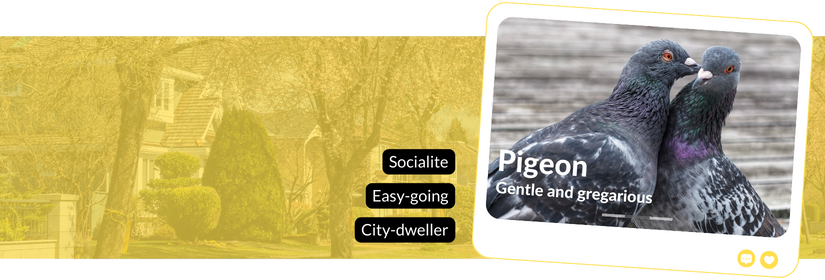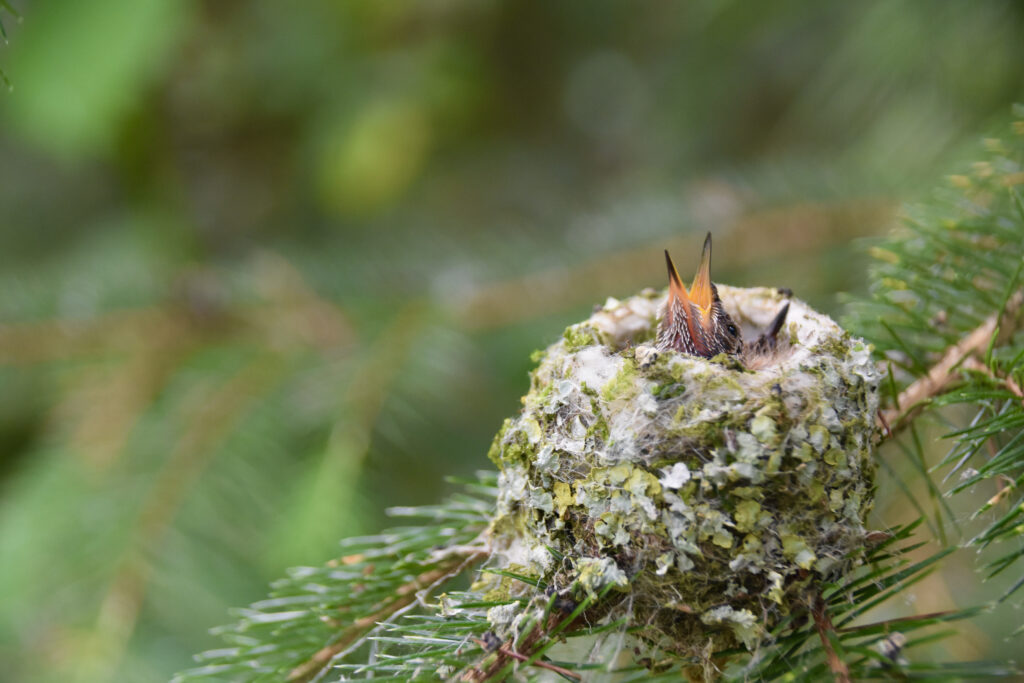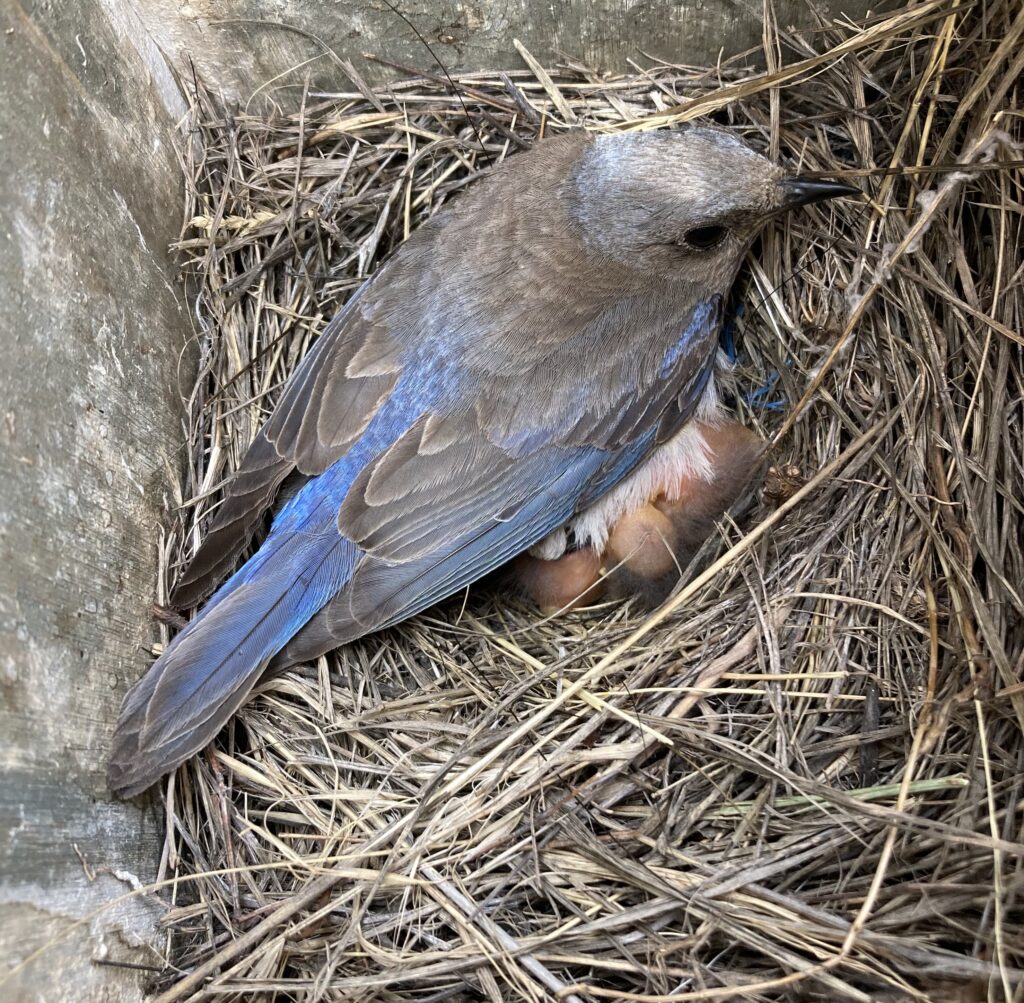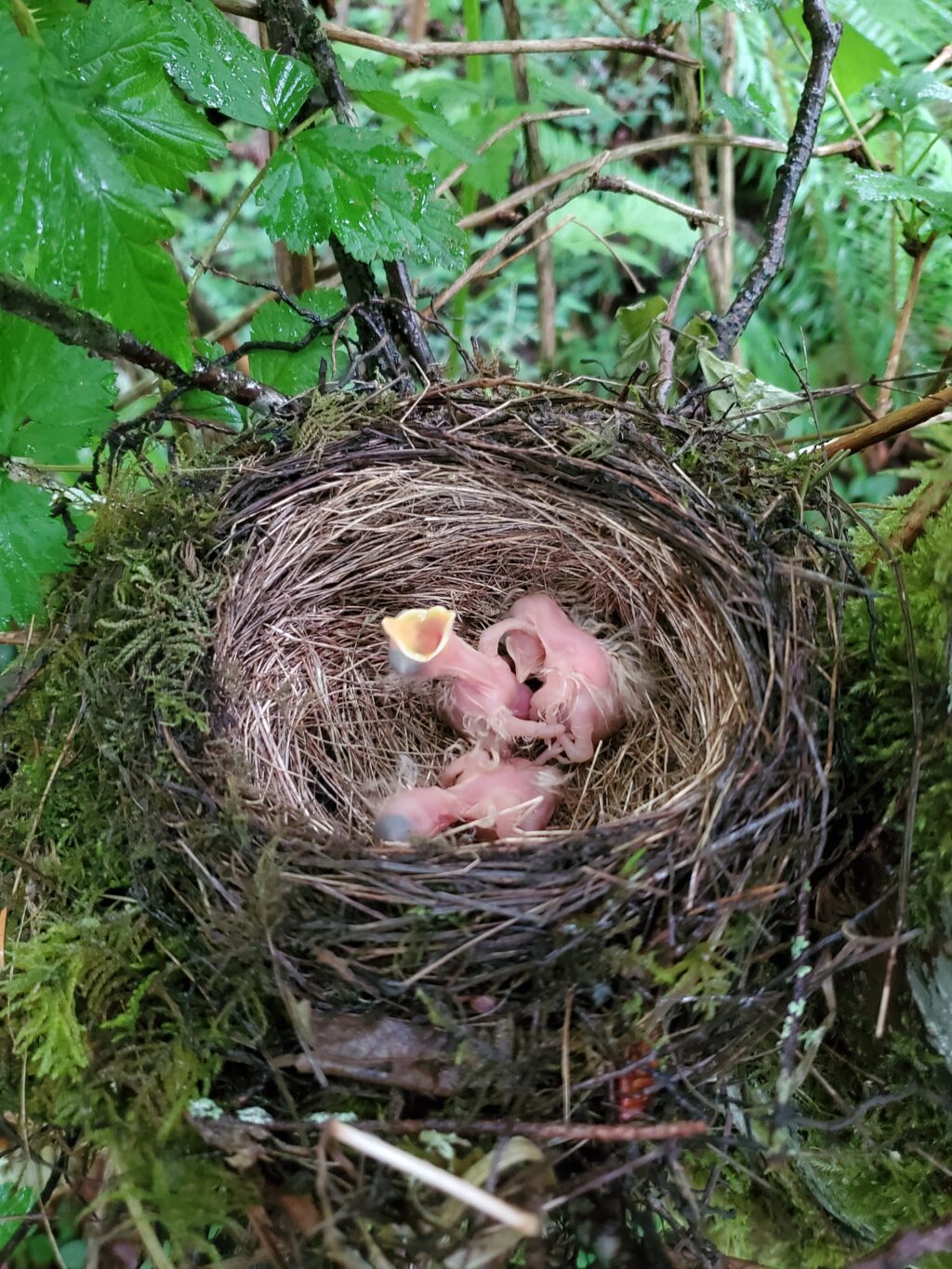Meet your urban wildlife neighbours: how to humanely handle nest-door neighbours

Have you ever lived with a nest-door neighbour? It can be a true joy to watch baby birds grow up under the attentive care of their avian parents, but they don’t always pick a convenient spot for people. If you have ever wondered, “can I move a bird nest?”
You’re not alone, and the answer may surprise you.

Leave the nest alone
If the nest is in a safe spot and not causing any problems, it’s best to leave the nest where it is. For most species of birds, it is typically illegal to disturb a bird’s nest, especially with eggs or chicks inside.
Even when the nest is empty, some species may still require a permit to remove the nest. This is because some bird species come back to the same nest every year.
The best solution is to wait a few weeks until the baby birds have all grown up and left the nest. A little bit of patience goes a long way to help our feathered friends.

No nest-ing around
Sometimes, birds build nests in places that seem strange to us. This could put the nest and babies in danger or cause other problems for people. For example, bird nests in chimneys or dryer vents are a fire hazard and can’t stay.
If you need to move the nest, make sure you know which type of bird is using it. Some species of birds will require a permit to move the nest, while others won’t.
House sparrows, starlings and pigeons are designated “Schedule C,” which means you can move the nests short distances (where the parents can still see them or provide a false replacement nest.)
For other birds, you may need the help of a professional or a permit from Environment and Climate Change Canada. Call the BC SPCA Animal Helpline at 1-855-622-7722 for advice – they can help you identify the birds and give you advice.
Where available, call an AnimalKind accredited company for help. Once the babies have left, they can help you bird-proof the area to make sure the problem doesn’t happen again. Or, they can help you move a nest with babies if needed for safety.
For species-specific information on managing birds, read BC SPCA best practices.

Help, I cut down a nest!
If you have accidentally cut down a nest, don’t panic. Depending on the situation and the species, you may be able to put the nest back up nearby or provide a quick replacement.
In some cases – for example, if the babies take a long fall or are found by a cat – the whole nest and all the babies will need to go to a wildlife rehabilitator for assessment and care. Find out what to do if you find a baby bird, or suspect a bird is injured.
Found a baby bird? Or not sure if the babies are orphaned? Watch the nest for 1-2 hours from a distance to make sure the parent(s) are coming back to feed the babies. Check out our website for baby bird tips, best practices, or call the BC SPCA Animal Helpline at 1-855-622-7722 for advice.
Stay informed!
Get AnimalKind news delivered to your inbox 4 to 6 times a year.
The BC SPCA processes your personal information to provide you with the products and services you have requested as well as for advertising and analytics purposes. More information on uses and how you can opt out may be found in our privacy policy.